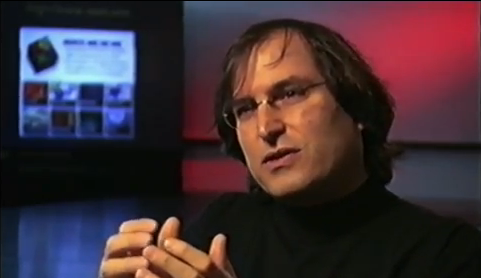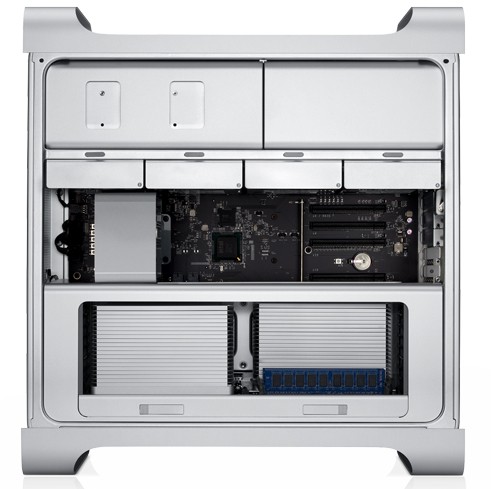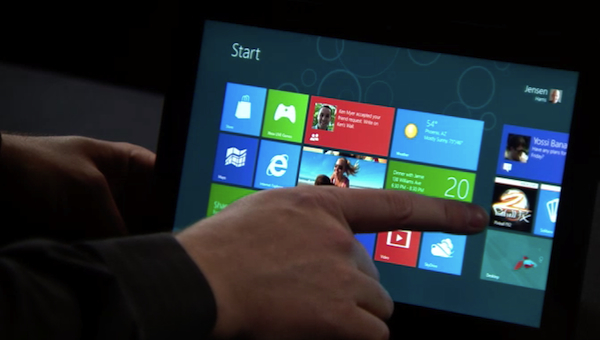
If there was a Yahoo Group called LIBOR...
LIBOR, the London InterBank Offered Rate, has been in the news lately as heads begin to roll in London and soon New York now that it’s clear LIBOR was manipulated by big banks, affecting the value of hundreds of trillions worth of financial instruments. This is a complex topic and it will be awhile -- perhaps years -- before it is clear how or even if you and I were damaged by these shenanigans, but everyone seems to agree that it can’t be allowed to happen again. But how? To make this happen I think we need a new understanding of what “transparency” means in financial transactions in the 21st century.
Transparency is supposed to mean that all parties in a financial transaction share the same information so nobody is blindsided. In practical terms transparency has usually meant something less: 1) that all parties can have the same information if they are willing to do the work to find it, and; 2) that all parties are held legally responsible as though they had the appropriate information. These latter statements mean generally that true transparency isn’t viewed as practical so all parties are on their honor to act transparently.

IT isn't powerless against the death squads of corporate America
About 10 weeks ago, I wrote a six-part series of columns on troubles at IBM that was read by more than three million people. Months later I’m still getting ripples of response to those columns, which I followed with a couple updates. There is a very high level of pain in these responses that tells me I should do a better job of explaining the dynamics of the underlying issues not only for IBM but for IT in general in the USA. It comes down to class warfare.
Warfare, to be clear, isn’t genocide. There are IT people who would have me believe that they are complete victims, powerless against the death squads of corporate America. But that’s not the way it is. There’s plenty of power and plenty of bad will and plenty of ignorance to go around on all sides here. Generally speaking, though, the topic is complex enough that it needs real explaining -- explaining we’re unlikely to get elsewhere in an election year dominated by sound bites.

PCs are still doomed and their end will come quicker than you think
A reader pointed out to me this past week that the personal computer is well over 30 years old -- a number that has real consequence if you are familiar with my work. He remembered I predicted in 1992 that PCs as we knew them would be dead by now.
I was obviously a little off in my timing. But only a little off. PCs are still doomed and their end will come quicker than you think.

Apple doesn't want you to know my film, 'Steve Jobs -- The Lost Interview', is on iTunes
My little film about Steve Jobs has finally made it to iTunes (YouTube as well!) as a $3.99 rental, but you wouldn’t know it. Deeming the film “too controversial,” Apple has it on the site but they aren’t promoting it and won’t. The topic is “too sensitive” you see. It isn’t even listed in the iTunes new releases. You have to search for it. But it’s there.
Maybe I’m not even supposed to tell you.

YouTube isn't the future of TV
In a few weeks I’ll launch a YouTube channel where you’ll be able to see lots of shows readers have asked about, including Startup America and even that lost second season of NerdTV. YouTube, as the largest video streaming service anywhere, is the absolute best place for me. But YouTube isn’t the future of TV.
I know this because TV is a business and this channel I’m launching is a business and I’ve spent the last several weeks talking to investors and running the numbers every which way. I’ve spent many hours with my friend Bob Peck looking at the economics of YouTube and my unequivocal conclusion is that while YouTube is great, it isn’t TV.

Kicking me on the way out the door, Network Solutions emailed: 'We value your business'
About a week ago I finally moved the cringely.com domain to EasyDNS from Network Solutions, my registrar since 1992. I have written in the past about how much I hate Network Solutions, but this was our final connection and I am now free. But not without them kicking me on my way out the door, crashing this blog for four hours over the weekend.
I began the domain transfer last Monday but Network Solutions, in its infinite wisdom, decided to complete the transfer on June 24, Sunday, at 2:04 pm Pacific time. That’s when they simply shut down my DNS despite the fact that I’m still paying for their service (I’m paid up until November). According to EasyDNS, of all the domain registrars only Network Solutions and GoDaddy drop customers cold like that.

Microsoft and Google won’t have a price advantage with iPad, so they’ll have to actually make a better product
Last week Microsoft kinda-sorta announced its new Surface tablet computer. This week will come a Google-branded tablet. Both are pitted against the mighty iPad. Both companies see opportunity because of what they perceive as a Steve Jobs blind spot. And both companies are introducing tablets under their own brands because they can’t get their OEM’s to do tablets correctly.
For all the speculation about why Microsoft or Google would risk offending hardware OEMs by introducing name branded tablets, the reality is that neither company really had any choice but to make the hardware. In the commodity PC market, no one company is likely to be willing to make the investment necessary to compete with the highly-integrated iPad. Samsung tried, and even then it didn’t pay off for them. Taiwan Inc + Dell just don’t seem to run that way. Furthermore, it is a lot easier to make a product when you control the operating system. You have the experts right there. You don’t have to go through support channels to fix stuff. So ultimately, Microsoft and Google should be able to make much better products than their licensees.

Microsoft Surface is all style and no substance at all
Microsoft’s Hollywood announcement Monday of its two Surface tablet computers was a tactical triumph but had no strategic value for the world’s largest software company because the event left too many questions unanswered. If I were to guess what was on Microsoft CEO Steve Ballmer’s mind it was simply to beat next week’s expected announcement of a Google branded tablet running Android. Microsoft, already playing catch-up to Apple’s iPad, does not want to be seen as following Google, too. So they held an event that was all style and no substance at all.
This is not to say that Microsoft shouldn’t make a tablet and couldn’t make a good one, but this particular event proved almost nothing.

Is there an IT labor shortage in the USA that can only be solved with more H1B visas?
My recent series of columns on troubles at IBM brought me many sad stories from customers burned by Big Blue. I could write column after column just on that, but it wouldn’t be any fun so I haven’t. Only now a truly teachable lesson has emerged from a couple of these horror tales and it has to do with US IT labor economics and immigration policy. In short the IT service sector has been shoveling a lot of horseshit about H1B visas.
The story about H1B visas is simple. H1B’s are given for foreign workers to fill US positions that can’t be filled with qualified US citizens or by permanent US residents who hold green cards. H1Bs came into existence because there weren’t enough green cards and now we’re told there aren’t enough H1B’s, either. So there’s a move right now in Washington to increase the H1B limit above the current level of approximately 65,000 because we are told the alternative is IT paralysis without more foreign workers.

We can’t expect regulators to become our crowdfunding coaches
Last in a series. In part one, we learned how important crowd funding can be for helping tech startups and the economy. In part two, we worried about how criminals and con men might game the eventual crowdfunding system when it starts in earnest next January. And in this final part I suggest a strategy for crowdfunding success that essentially comes down to carpe diem– seize the day!
Crowdfunding done right will have a huge positive impact on any economy it touches. But by done right I mean done in a manner that maximizes impact and minimizes both corruption and unnecessary complexity. This is not something that must be accomplished specifically through strict regulation, either. I’m not opposed to regulation, just suspicious of it. I’m suspicious of any government policy that purports to be so elegant as to accomplish economic wonders at little or no cost. That just hasn’t happened in my fairly long lifetime so I see no reason to expect things to change.

MacPro is doomed
Not all of Apple’s new and upgraded products were even mentioned in Monday’s Worldwide Developer Conference keynote. I was especially interested in Apple’s tower computer, the Mac Pro, which was both upgraded and killed at the same time.
The Mac Pro is Apple’s machine for media professionals. With up to 12 CPU cores, 64 gigs of RAM and eight terabytes of disk storage, it is a very powerful machine aimed at video editors, DNA sequencers, and anyone else who needs a supercomputer under their desk. And on Monday Apple upgraded the Mac Pro for the first time in two years, adding faster processors, better GPU options (it has, remember four PCI Express slots), and interesting SSD options. But what Apple didn’t upgrade was the Mac Pro’s USB ports to USB 3.0.

Crowdfunding will bring out the crooks and the con men
Second in a series. Legal crowdfunding is coming, as I explained in the first part of this series. Thanks to the Jumpstart Our Business Startups (JOBS) Act, investors big and small will soon have new ways to buy shares in startups and other small companies. This should be very good for growing companies and for the economy overall, but there’s peril for individual investors -- from scammers likely to be operating in the early days of this new law.
Most concerns hearken back to the Banking Act of 1933, enacted to bring order and regulation to the banking industry during the Great Depression. It was the collapse of the banking industry, not the stock market crash, that did most of the damage during the Depression. Also called the Glass-Steagall Act, it established federal insurance for bank deposits, keeping banks in the savings business and out of investing, leaving the trading to stock brokers and investment banks, which were not allowed to take deposits. Glass-Steagall along with the Securities Act of 1933 and the Securities Exchange Act of 1934 established a regulatory structure that many people thought worked well, until 1999 when parts of Glass-Steagall were repealed by the Gramm-Leach-Bliley Act. Sorry for all the legislative history, folks, but you can’t tell the players without a program.

3,000 websites turn on iPV6 and nothing happens -- that's the way it should be
Two days ago, 3,000 important websites, including Google, Facebook, YouTube, and Yahoo as well as many top Internet Service Providers, turned on their IPv6 support and this time they left it turned on. Nothing happened. Or maybe I should say nothing bad happened, which is good, very good.
The world is quickly running out of new IPv4 addresses, with almost 3.7 billion issued. There are two workarounds: 1) complicate the Net further with cascading arrays of Network Address Translation (NAT) servers that slow things down, inhibit native inbound connections like VoIP, and defeat location services both good and bad, or; 2) move to IPv6 with 128-bit addresses (IPv4 is 32-bit) that would allow giving an IPv6 address not only to every person and device but to every sock in everyone’s sock drawer as well, allowing bidirectional communication with hundreds of billions of devices from pacemakers to doorbells. Editor: Yes, but what about the socks that disappear in clothes dryers?

Why do we need crowdfunds?
First in a series. When President Obama signed the Jumpstart Our Business Startups (JOBS) Act on April 5th, the era of crowdfunding began as individual investors everywhere were promised an opportunity to gain access to venture investments previously limited to institutions, funds, and so-called qualified investors. Come January 1, 2013, we’re told, anyone can be a venture capitalist, but hardly any of these new VCs will know what they are doing. Spurred by the new law we will shortly see a surge of crowdfunding startups giving for the first time unqualified investors access to venture capital markets. And it will be a quagmire.
Like disk drive startups in the 1980s, each of these new crowdfunds will project 15-percent market share. Ninety-five percent of these funds will fail from over-crowding, under-funding, mismanagement, lack of deal flow, being too late, being too early, or just plain bad luck. A few will succeed and a couple will succeed magnificently, hopefully raising all boats. The point of this column and the two to follow is to better understand this phenomenon and how readers can benefit from it or at least avoid losing their shirts.

Why flatten Windows 8? Because Aero won't run on a phone
Beta versions of Windows 8 this week lost their nifty Aero user interface, which Microsoft’s top user interface guy now calls "cheesy" and "dated" though two weeks ago he apparently loved it. Developers are scratching their heads over this UI flatification of what’s supposed to become the world’s most popular operating system. But there’s no confusion at my house: Aero won’t run on a phone.
Look at the illustration for connected device growth. It shows projected growth in Internet devices. Keep in mind while reading this that a PC lasts at least three years, a phone lasts 18 months and nobody knows yet how long the average tablet will be around but I’ll guess two years. Adding that knowledge to these sales projections and we can see that mobile devices (phones and tablets) have become the game in software and whoever has been shouting about that at Microsoft is finally being heard.

